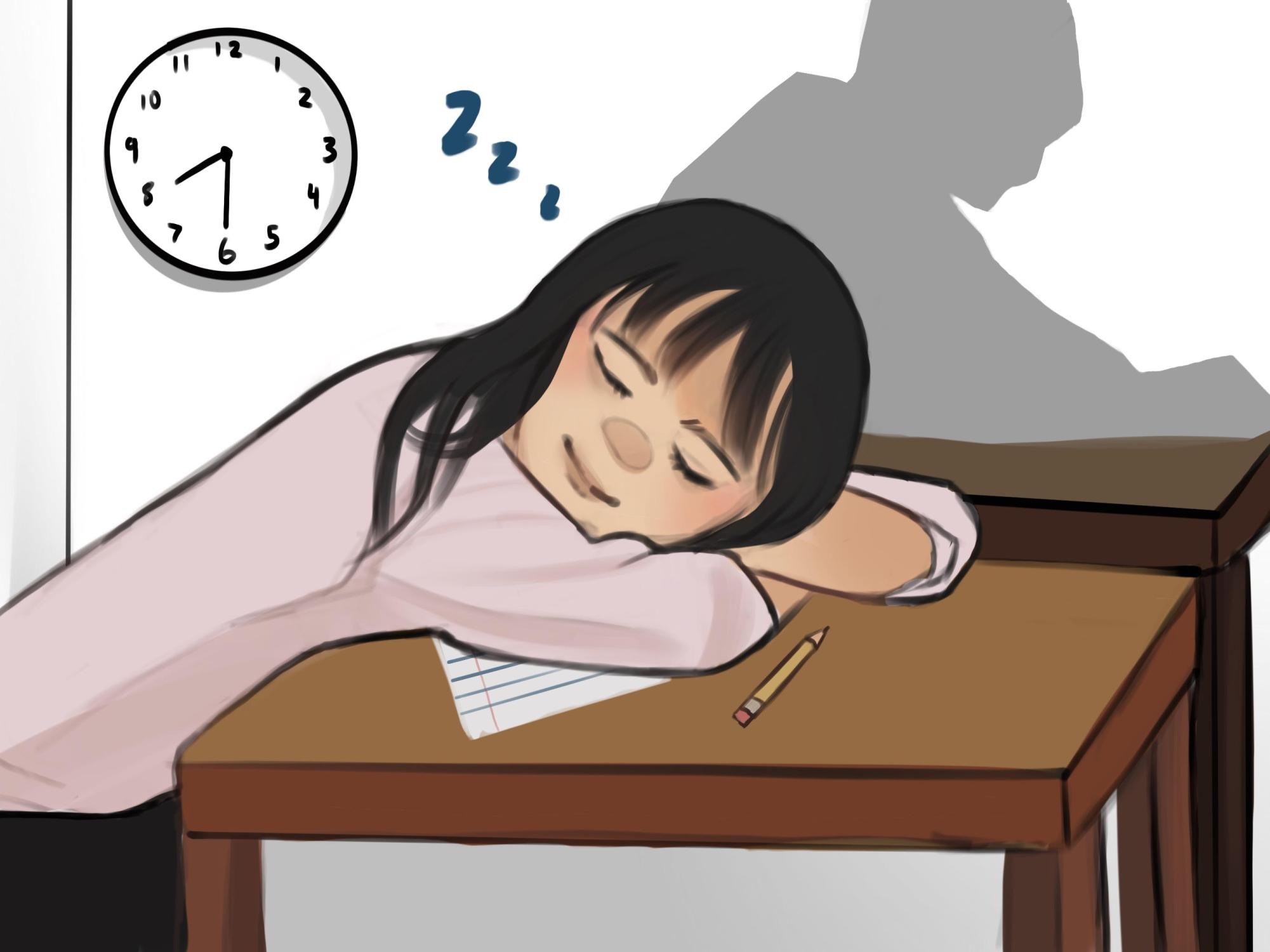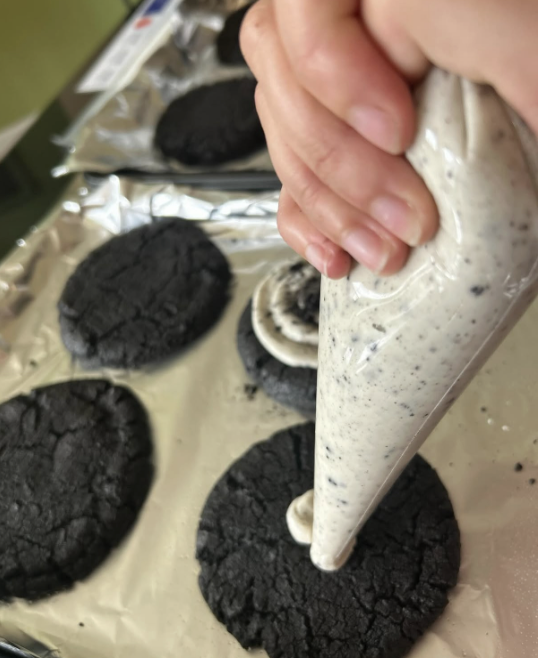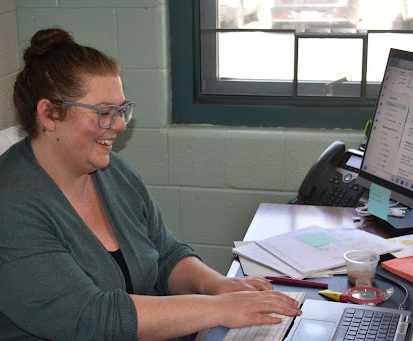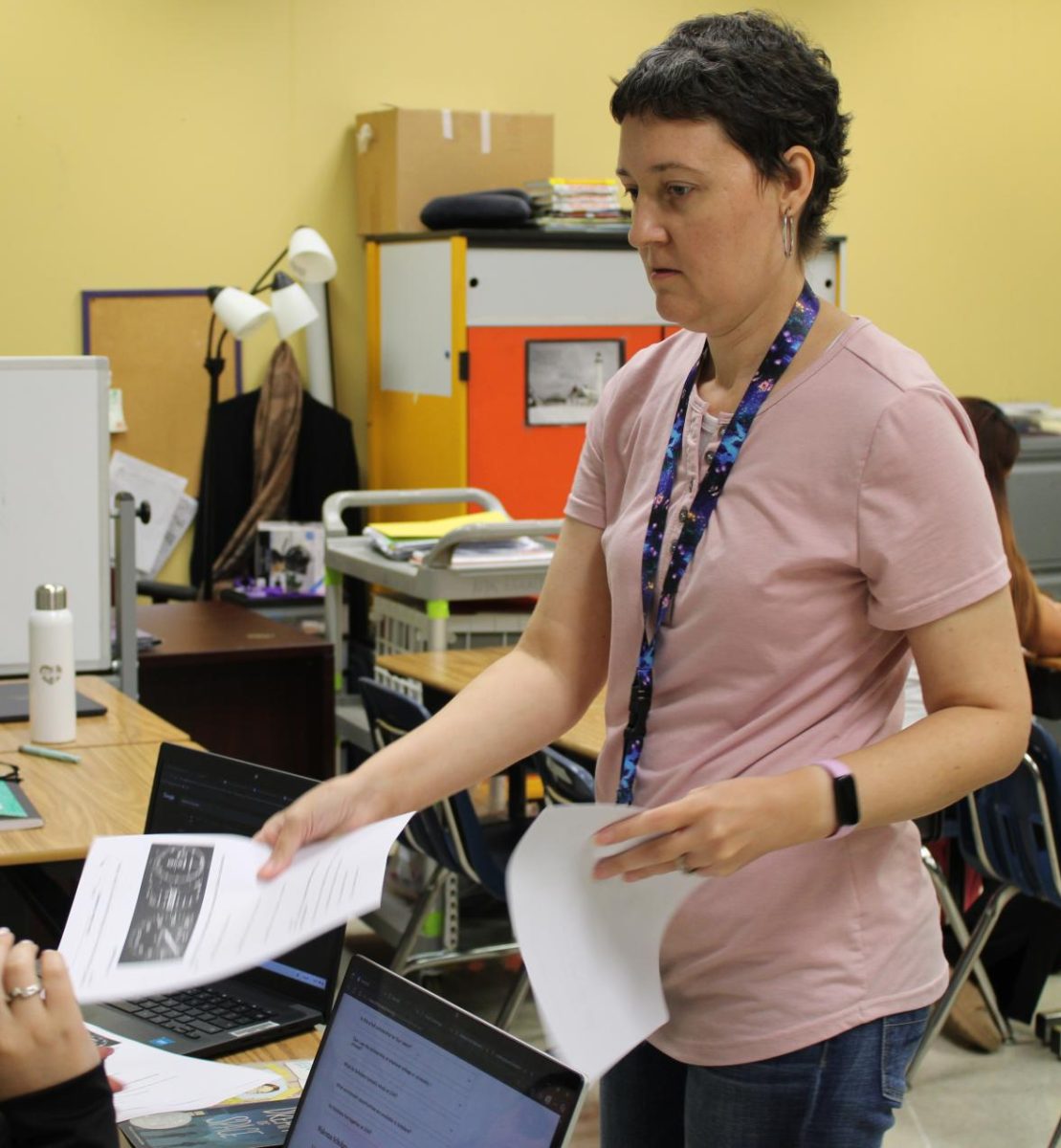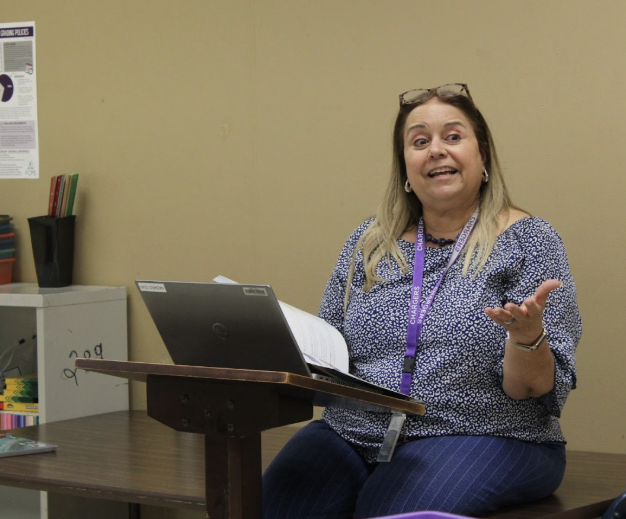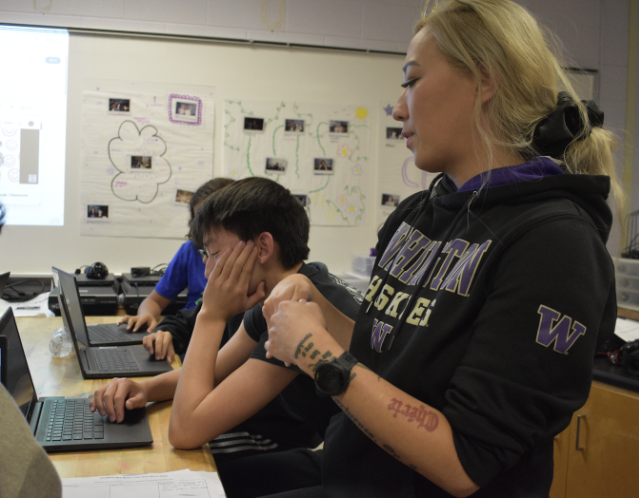Nearly 72.7% of high school students don’t get the recommended eight to ten hours of sleep on school nights, according to the Centers for Disease Control and Prevention. May is Better Sleep Month, reminding students to prioritize improving their sleep habits.
“I normally get seven hours of sleep every school night,” sophomore Ethan Shen said. “I know it’s not enough sleep, because I’m constantly dozing off in class.”
According to the National Sleep Foundation, high school students who report spending more time on homework tend to have shorter sleep durations. The study found that students who spent over 15 hours per week on homework were more likely to experience insufficient sleep on school nights. Shen spends at least four hours doing homework after school, some days more.
“I feel like my homework load never ends,” Shen said. “It’s a constant cycle of coming home, doing homework for what feels like forever, and feeling exhausted the next day.”
Students in competitive environments who spent more time on homework had less time for sleep, media use and social activities. A survey by the Better Sleep Council revealed that about one out of three teens spend 20 or more hours weekly on homework, surpassing time allocated to work, extracurriculars and social interactions. Junior Maximiliano Munoz starts his homework as soon as he gets home from school, but still finds himself staying up late.
“Schoolwork affects my sleep schedule a lot,” Munoz said. “I normally stay up until 11:00 doing homework and I need time to relax after, so I’ll do things I enjoy, which makes me stay up even later.”
According to the National Library of Medicine, extracurricular activities can significantly delay adolescents’ bedtimes and reduce their total sleep duration. These activities, such as sports, music, clubs, and part-time jobs, are often scheduled in the evening, which shifts students’ routines later into the night. As a result, adolescents may begin homework later, pushing their sleep onset further and shortening the window available for rest before early school start times. The combination of after-school commitments and morning obligations compresses the time available for sleep, leading to chronic sleep restriction during the school week.
“Sometimes I’ll have tennis meets or practice after school,” sophomore Claire Yi said. “It’s time-consuming, and if I get home late, I’m speeding to do homework and tend to go to sleep later on those days.”
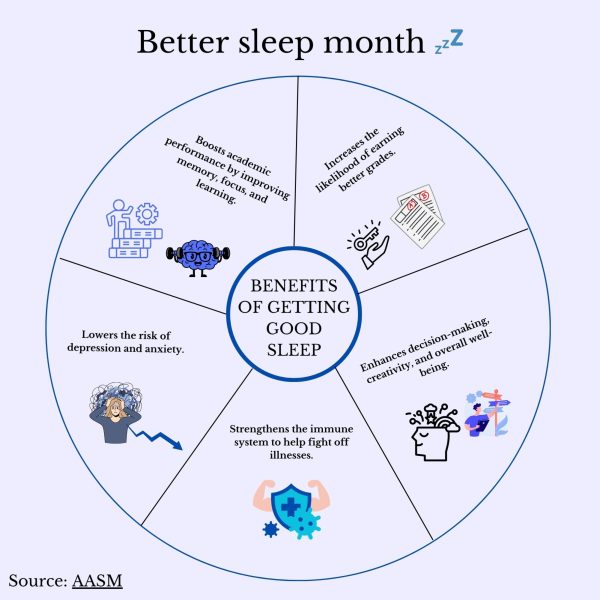
According to the American Academy of Pediatrics, reducing screen time before bed is essential for better sleep quality. It is recommended to set limits on electronic device use, particularly during homework and just before bedtime, to help students avoid distractions and improve their ability to fall asleep.
“When I’m doing my homework, I shut off my phone and remind myself that distractions will make it take twice as long,” Yi said. “Most of the time it works and I stay on task, so I have more time to relax before bed and I’m not staying up super late.”
One major factor that contributes to late bedtimes is high school students’ use of electronic devices such as smartphones, computers and other televisions before bed. According to the American Academy of Sleep Medicine, turning off electronic devices 30-60 minutes before bedtime can mitigate these effects.
“I spend some time on my phone after completing my homework,” Yi said. “But, right before bed, I put my phone across the room so I’m not as tempted to go on it.”
According to Frontiers, exposure to the blue light from electronic devices before bed disrupts sleep patterns by suppressing melatonin production, which delays sleep onset and reduces sleep quality. In the long term, it can negatively affect overall well-being.
“I feel like going on my phone makes me so much more awake before bed,” Munoz said. “By the time I realize how much time I’ve spent on my phone, I’ve already cut into the hours I need to sleep.”
According to the National Institutes of Health, chronic insufficient sleep in adolescents is linked to a range of negative health outcomes, including increased risks of depression and poor academic performance. As part of Better Sleep Month, awareness efforts emphasize the importance of addressing sleep deficiency in teens by encouraging consistent sleep schedules, reducing evening screen time, and promoting better time management.
“I genuinely believe getting enough sleep makes all the difference,” Shen said. “When I get a good amount of rest, I’m more focused in class, in a better mood to socialize with people and way more productive.”


